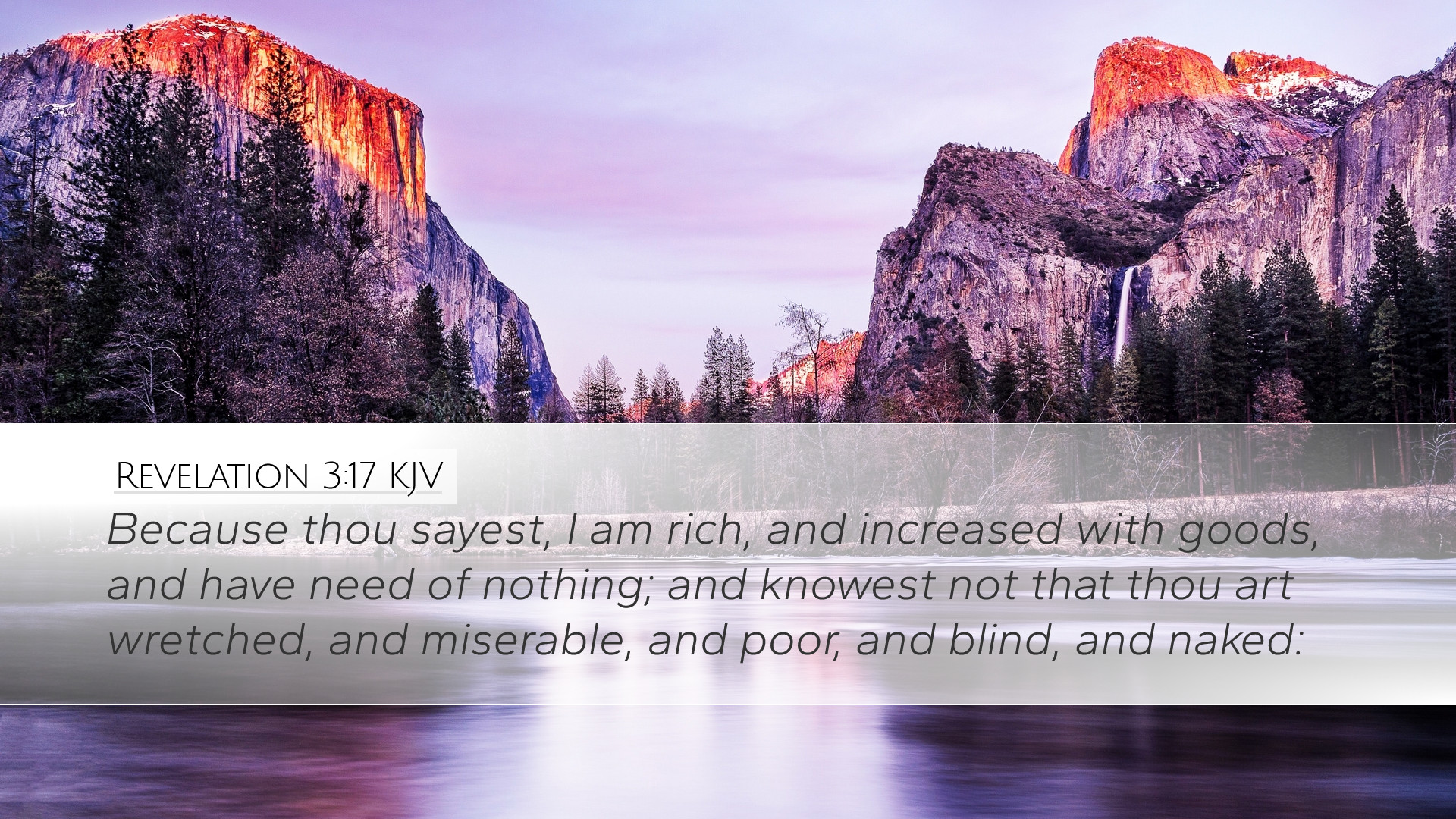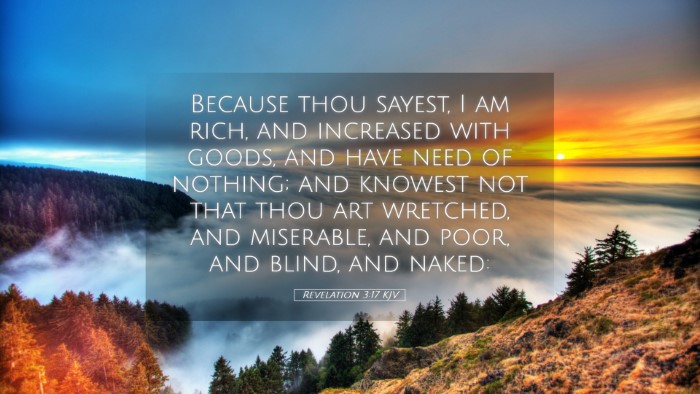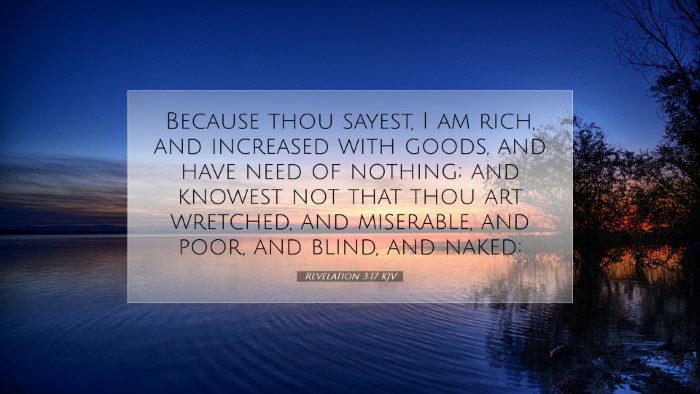Commentary on Revelation 3:17
Revelation 3:17 states: "Because you say, 'I am rich, have become wealthy, and have need of nothing'; and do not know that you are wretched, miserable, poor, blind, and naked." This verse provides a profound insight into the condition of the church in Laodicea, illustrating both spiritual complacency and deception. Below, we provide a summary of insights from various public domain commentaries.
Contextual Background
The church in Laodicea was located in an affluent city known for its wealth and commerce. This abundance contributed to a sense of self-sufficiency which is critical to understanding the passage. Unlike other churches addressed in Revelation, the Laodicean church lacked any commendations. The stark rebuke reflects their spiritual condition.
Matthew Henry's Insight
Matthew Henry emphasizes that the main issue of the Laodicean church is self-deception. They believe themselves to be spiritually rich and satisfied, yet they are, in reality, destitute. Henry writes:
"They think all is well with them; they have need of nothing; they are thereby filled with pride and confirmation in their false security."
Henry stresses the dangers of wealth, which led to a spiritual blindness. The church’s reliance on material prosperity blinded them from recognizing their true spiritual state. He warns:
"Outward prosperity often begets inward decay."
Albert Barnes' Perspective
Albert Barnes complements this understanding by highlighting the contrast between the church's perception and God’s assessment. Barnes notes:
"The condition of Laodicea is a perfect representation of many Christians today who are satisfied with themselves, not realizing their true spiritual poverty."
He further explains that the phrases used—“wretched,” “miserable,” “poor,” “blind,” and “naked”—are not merely figurative but reflect a true state of being. Each term illustrates a facet of their spiritual destitution:
- Wretched: indicating deep distress and misery.
- Miserable: reflecting a life devoid of joy due to their condition.
- Poor: signifying a lack of true spiritual riches.
- Blind: implying a lack of perception regarding their spiritual state.
- Naked: symbolizing vulnerability and lack of spiritual covering.
Adam Clarke's Analysis
Adam Clarke stresses the irony in the self-assessment of the Laodicean Christians. He remarks:
"Their blindness and nakedness were so great that they did not even discern their true condition."
Clarke points out that the Laodiceans' material wealth led them to become arrogant in their spirituality. They mistakenly correlated their physical affluence with spiritual health. This misunderstanding echoes throughout history, and Clarke encourages readers to seek spiritual enlightenment:
"The true wealth of the soul is found in humility, repentance, and faith—not in material possessions."
Applications for Today
The message of Revelation 3:17 remains profoundly applicable for contemporary believers and church communities. Here are some reflections for pastors, students, theologians, and Bible scholars:
- Beware of Complacency: The Laodicean attitude of self-sufficiency can infiltrate any congregation. It is vital for churches to regularly assess their spiritual vitality and seek authentic engagement with God.
- Recognize the Value of Spiritual Wealth: Believers must understand that true richness comes from a relationship with Christ, filled with the fruits of the Spirit, rather than material possessions.
- Encourage Humility: Pastors should promote a culture of humility and dependence on God among their congregants, contrasting worldly success with spiritual growth.
- Call to Action: Use this passage as a framework for preaching repentance and renewal, calling the church to awaken from spiritual slumber.
Conclusion
Revelation 3:17 serves as a stark warning against spiritual complacency and self-deception. The insights from Matthew Henry, Albert Barnes, and Adam Clarke converge to provide a multifaceted understanding of this text. In focusing on spiritual reality over perceived prosperity, believers are called to examine their lives and strive for genuine closeness with Christ—a wealth that transcends material goods.


